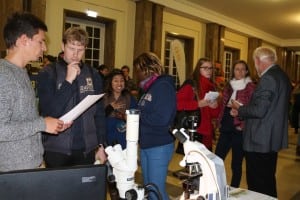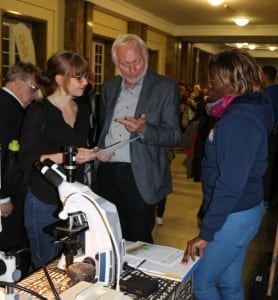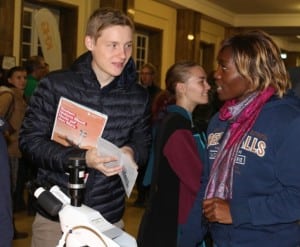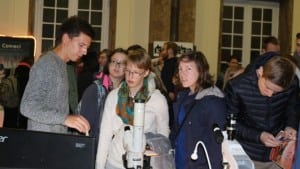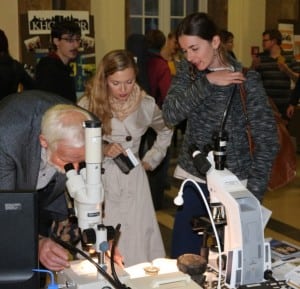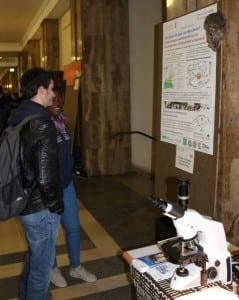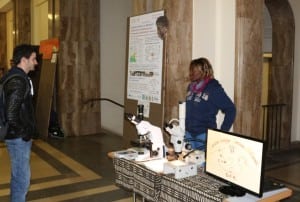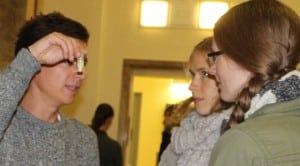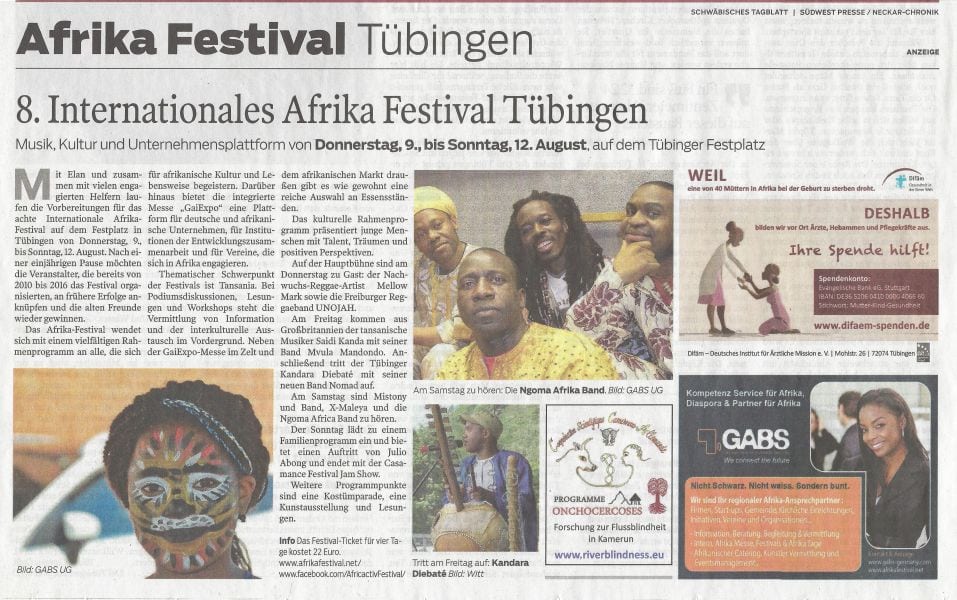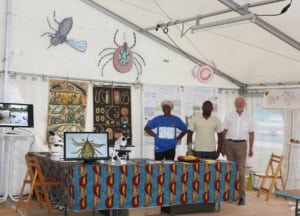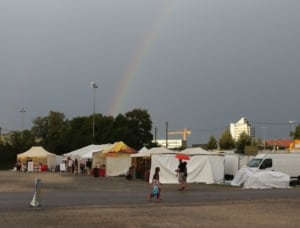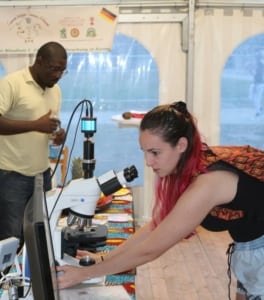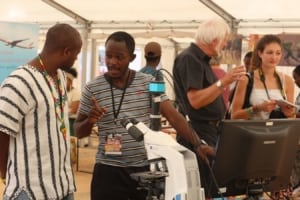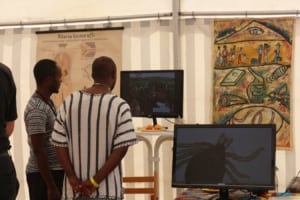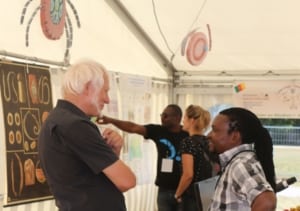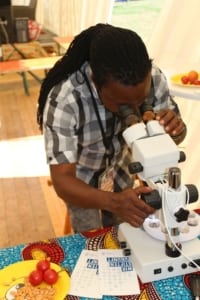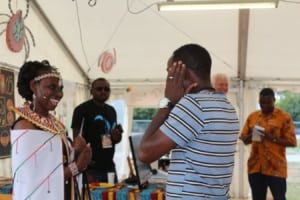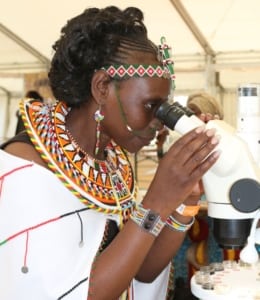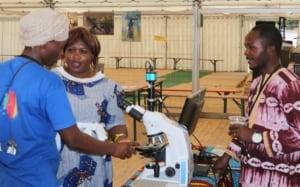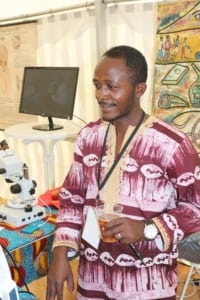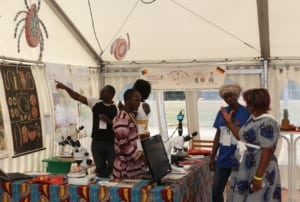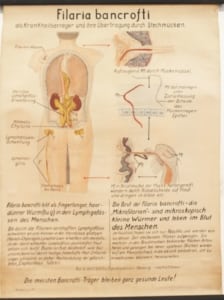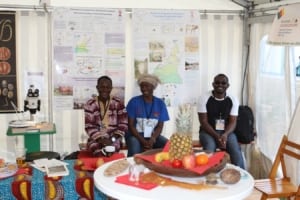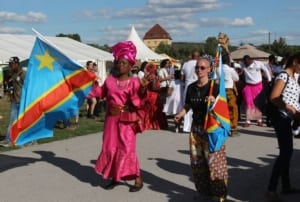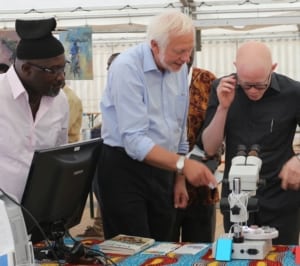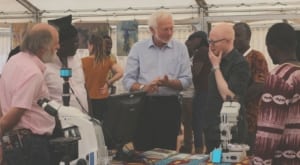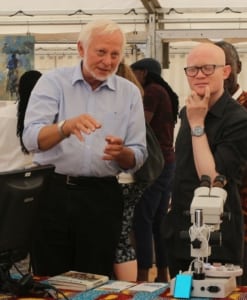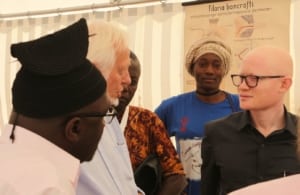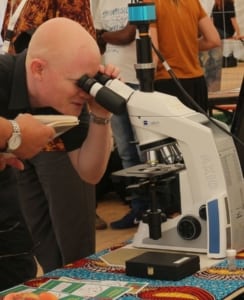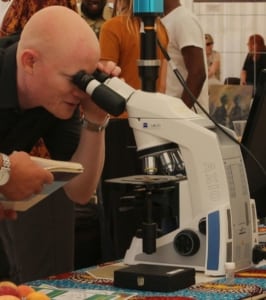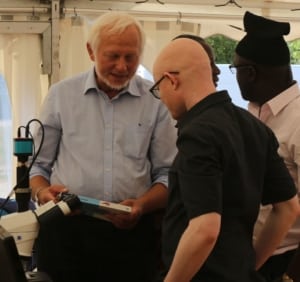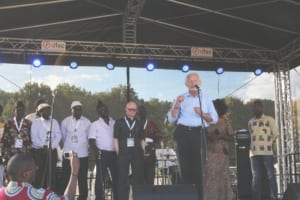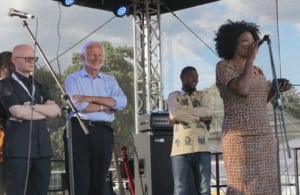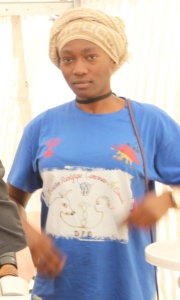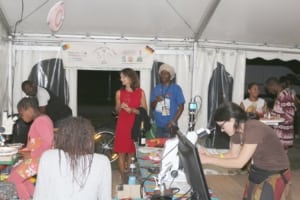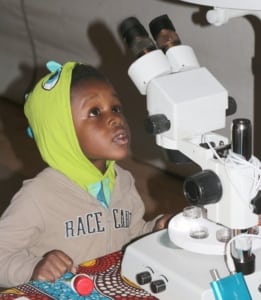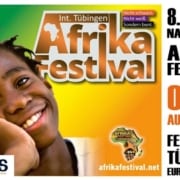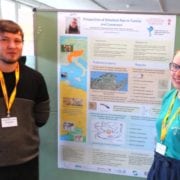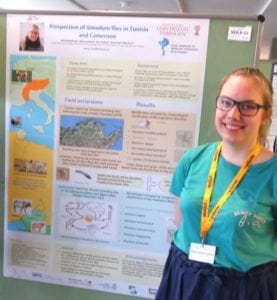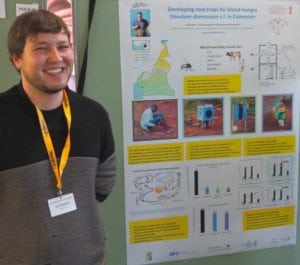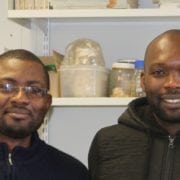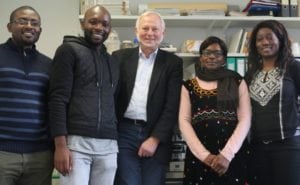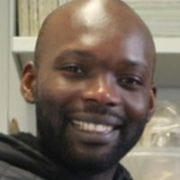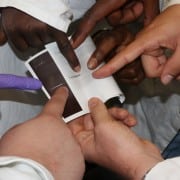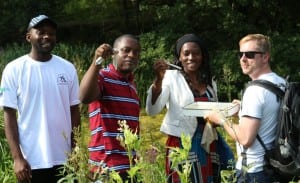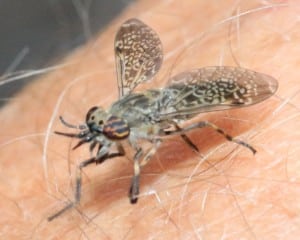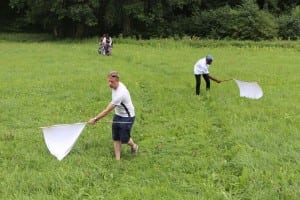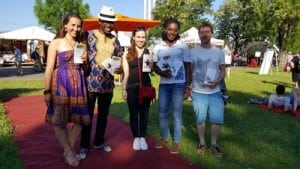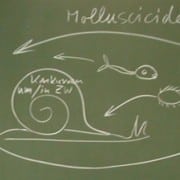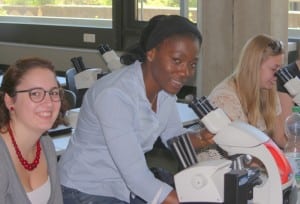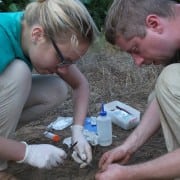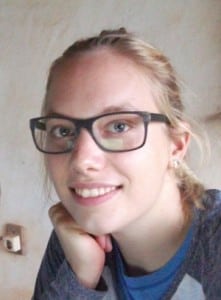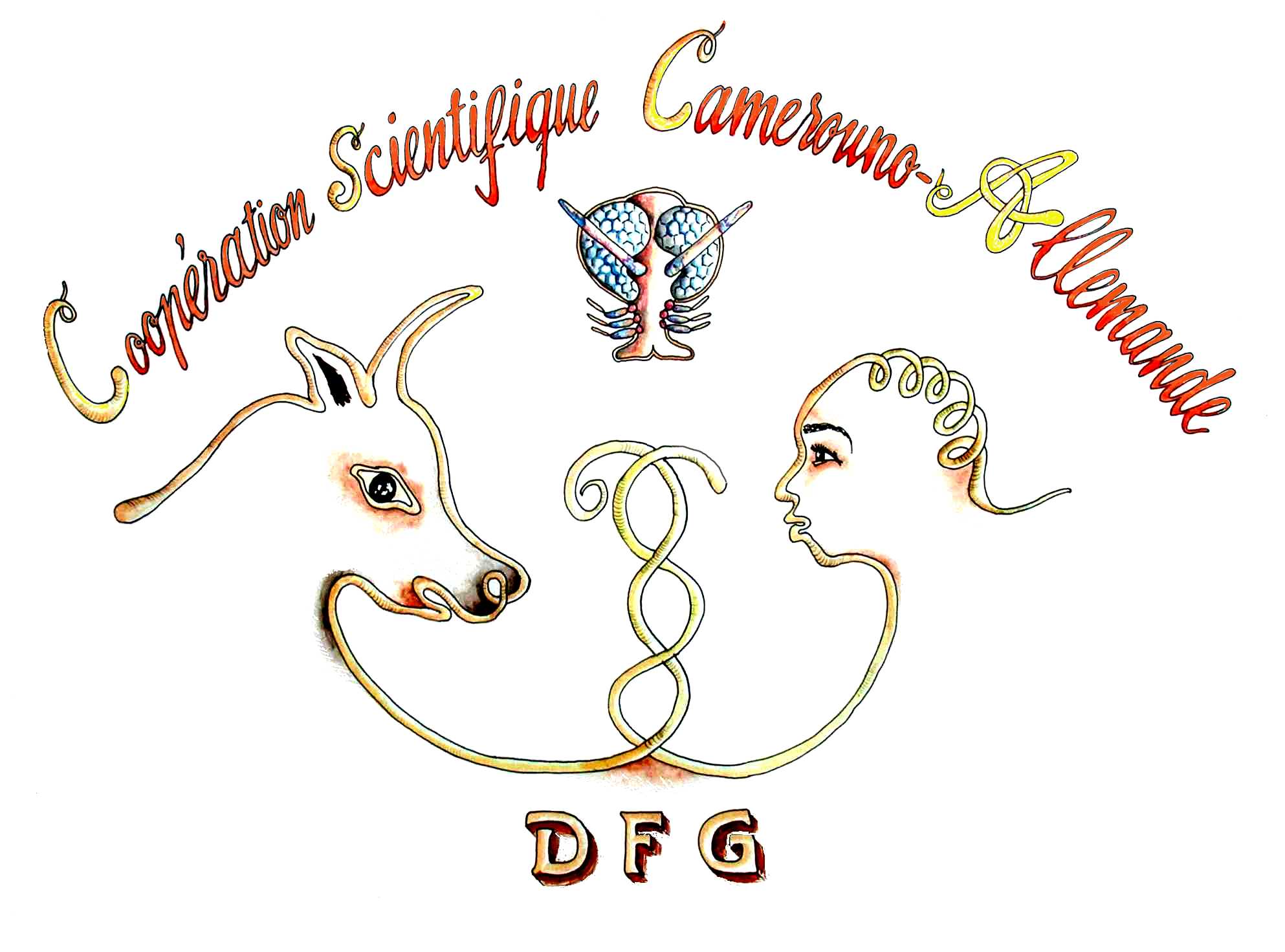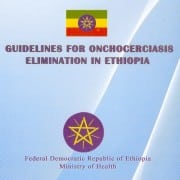Like every semester, the dies universitatis of the university of Tübingen takes place during the first week of the lectures. This time on the 15th of October.
Programme Onchocercoses was present on the Morgenstelle (Hörsaalzentrum) from 14 to 16 hrs and in the Neuen Aula from 18 to 20 hrs.
See: https://www.uni-tuebingen.de/aktuelles/dies-universitatis-2015.html
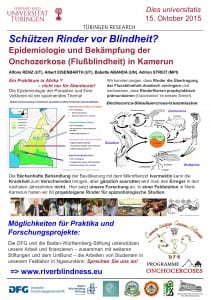
It was a long day of presentations, from 14 to 20 hrs! And a very interesting experience for all of us.
Thanks to Sophia Stiegler, Francois Korbmacher and Freya Zettl, which just had come back from Cameroon and Babette Abanda, a PhD-student from Cameroon, the set-up of our installation with two microscopes and posters went quickly. We showed parasites from Cameroon and their vectors. The aim was to give an impression of our on-going work in the Programme Onchocercoses fieldstation in Cameroon and to motivate students to join our team.
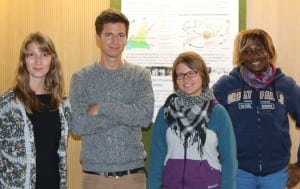
The site for the – only two! – presentations of the Faculty of Natural Sciences had been quiet unfavorably selected in the Hörsaalzentrum on the Morgenstelle. In a place, where it was dark and where only few students passed, mostly in a great hurry between their lectures.
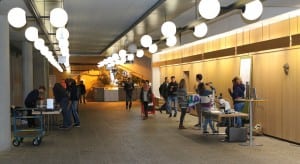
At the left site, there was the laser-show of the presentation of the Institute of Physics (PD Dr. Sebastian Slama): For better visibility, we had moved to the other, more illuminated site of the floor.

However, only very few visitors came – so we were mostly occupied by ourselves, since this was for the first time that the students met after their stay in Cameroon. And there was plenty of time to answer emails!
At 16 hrs, we moved to the Neue Aula, the main university building. There, the Hall was booming of students, visiting the about 100 presentations of the ‘Markt der Möglichkeiten’. From 18 to 20 hrs, we had the occasion to present our field-work in Cameroon, to show parasites and vectors under the microscopes and discuss with students and teachers. This was a great success. A number of students now intend to attend the ‘Cameroon-Seminar’ of Babette Abanda and some were asking to do their practical in Cameroon. We hope that this shall be possible by the funding of the Baden-Württemberg-Stiftung, which is supporting our Africa-German collaboration.
